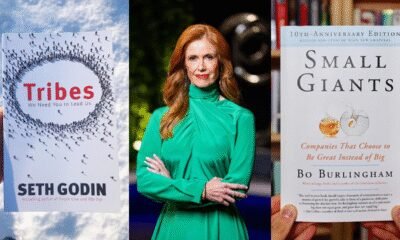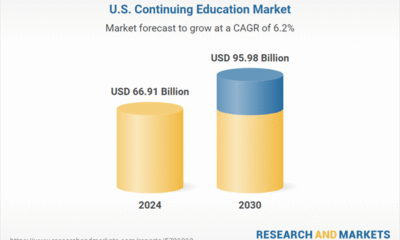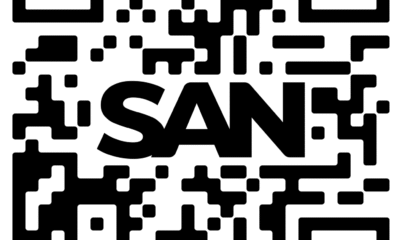Ethics & Policy
7 Life-Changing Books Recommended by Meg Whitman

7 Life-Changing Books Recommended by Meg Whitman (Picture Credit – Instagram)
Few business leaders have balanced corporate ambition with public service as effectively as Meg Whitman. From leading eBay through explosive growth to serving as a U.S. ambassador, her reading habits reflect a thoughtful approach to leadership, innovation, and personal values. The books she recommends are not just blueprints for success, but lessons in vision, ethics, and strategic thinking. Each one offers insight into the mindset of a woman who has navigated boardrooms and bureaucracies with equal command and continues to inspire across industries.
1. Good to Great by Jim Collins
Jim Collins examines what allows good companies to become exceptional and sustain success. Based on rigorous research and case studies, the book identifies key traits like disciplined leadership, focused goals, and strategic consistency. Meg Whitman credits this book as foundational to how she led eBay through transformational growth. She resonates with its insights on humility, resilience, and long-term vision.
For Whitman, the book reinforces the belief that greatness isn’t accidental; it comes from a culture of accountability and aligned purpose at every level of an organisation. It also underscores the value of disciplined leadership, data-driven decisions, and the power of investing in people who share a unified mission. These principles, she believes, are essential for building enduring companies that lead with integrity and adapt wisely in times of change.
2. The World Is Flat by Thomas L. Friedman
Friedman’s bestseller explains how technological advances and globalisation have levelled the economic playing field. The book breaks down how companies and individuals must now compete on a global scale, no matter their geography. Meg Whitman finds this analysis crucial for understanding the modern economy’s interconnectedness. It helped her grasp the future of commerce and labour distribution during her years at eBay and Hewlett-Packard.

The book encourages leaders to embrace agility, tech fluency, and global vision, principles Whitman has consistently applied in business and diplomacy. It also highlights the importance of inclusive growth, digital infrastructure, and cross-border collaboration, all of which align with Whitman’s focus on scalable innovation, sustainable strategy, and fostering opportunity in rapidly shifting global markets.
3. Playing to Win by A.G. Lafley & Roger L. Martin
This book offers a clear framework for crafting effective business strategy, based on the authors’ experience transforming Procter & Gamble. It outlines essential choices about where to compete and how to succeed. Meg Whitman values its practical, no-nonsense approach to decision-making. For her, the book’s emphasis on clarity, consistency, and strategic intent made it a vital tool for leading high-stakes organisations.
Rather than abstract theories, it provides structured methods for driving performance, allowing leaders to navigate complexity with focus and confidence. It also reinforces the value of measurable outcomes, disciplined execution, and alignment across teams, principles that Whitman has used to turn around businesses and lead with purpose. Its practical approach has helped her foster accountability while keeping long-term vision rooted in achievable, data-backed goals.
4. A Christmas Carol by Charles Dickens
This beloved novella follows Ebenezer Scrooge’s transformation from a miser to a man of generosity and compassion. Though fictional, the book’s moral depth profoundly resonates with Meg Whitman. She views its themes of redemption, empathy, and social responsibility as key lessons for leaders. The story highlights that success must be rooted in values and human connection, not just profit.
Whitman sees it as a timeless reminder that leadership carries ethical responsibilities. It aligns with her belief that self-aware, values-driven leaders can build trust, inspire change, and shape society beyond profit. For her, true leadership is rooted not just in results but in responsibility, integrity, and lasting impact.
5. Hot, Flat, and Crowded by Thomas L. Friedman
In this urgent sequel to ‘The World Is Flat,’ Friedman turns his focus to environmental degradation, population growth, and rising middle-class demands. He argues that the U.S. must lead in clean technology and sustainability. Meg Whitman appreciates its persuasive case for innovation as a patriotic and economic imperative. The book influenced her thinking on how business must intersect with environmental stewardship.

It calls for bold, systemic change, values Whitman has echoed in advocating for forward-thinking solutions that balance growth with global responsibility. It also stresses the urgency of innovation, cross-sector collaboration, and long-term sustainability over short-term gain. For Whitman, the book reinforced the idea that corporate leaders must be proactive in addressing climate risks and resource equity, integrating environmental ethics into core strategies to secure a viable future for both business and planet.
6. The New American Story by Bill Bradley
Former senator Bill Bradley presents a vision of America rooted in compassion, civic duty, and people-first politics. He addresses major reforms with a bipartisan, pragmatic tone that Meg Whitman finds essential. His focus on collective action and institutional change aligns with her shift from business to public service, reinforcing her belief that meaningful progress starts with inclusive, values-led leadership.
The book underscores how civic trust, equitable policy, and transparent leadership can rebuild fractured systems. For Whitman, it affirms the belief that effective governance must prioritise collaboration over partisanship, and compassion over rhetoric. It continues to shape her approach to diplomacy, reinforcing the idea that transformative leadership requires listening, shared purpose, and unwavering commitment to the common good.
7. Dear Founder by Maynard Webb
Maynard Webb’s book compiles letters of advice to entrepreneurs facing the chaos and exhilaration of starting companies. Each chapter blends practical tips with personal anecdotes, covering resilience, culture, and growth. Meg Whitman recommends it for its honesty and clarity, qualities she believes are often overlooked in startup advice. The book aligns with her leadership philosophy: transparent, empathetic, and grounded in experience.

She admires how Webb empowers founders to lead with intention, making this guide a trusted companion for anyone starting or scaling a business. Its focus on clarity, values, and long-term vision aligns with Whitman’s belief in mission-driven leadership. The book offers pragmatic advice on building resilient teams, setting meaningful goals, and avoiding common startup pitfalls. For Whitman, it reinforces that success isn’t just about innovation; it’s about creating a purpose-led culture where strategy, people, and execution move in harmony from day one.
Meg Whitman’s book recommendations span strategy, ethics, and personal transformation. They offer a holistic approach to leadership that values both results and responsibility. From corporate boardrooms to government halls, these books have guided her with insight and conviction. They show that leading well means thinking broadly, acting deliberately, and staying anchored in principle. Whether you’re a startup founder, an executive, or a public servant, her reading list provides a thoughtful roadmap to navigate leadership with intelligence, empathy, and enduring impact.
Ethics & Policy
Navigating the Investment Implications of Regulatory and Reputational Challenges

The generative AI industry, once hailed as a beacon of innovation, now faces a storm of regulatory scrutiny and reputational crises. For investors, the stakes are clear: companies like Meta, Microsoft, and Google must navigate a rapidly evolving legal landscape while balancing ethical obligations with profitability. This article examines how regulatory and reputational risks are reshaping the investment calculus for AI leaders, with a focus on Meta’s struggles and the contrasting strategies of its competitors.
The Regulatory Tightrope
In 2025, generative AI platforms are under unprecedented scrutiny. A Senate investigation led by Senator Josh Hawley (R-MO) is probing whether Meta’s AI systems enabled harmful interactions with children, including romantic roleplay and the dissemination of false medical advice [1]. Leaked internal documents revealed policies inconsistent with Meta’s public commitments, prompting lawmakers to demand transparency and documentation [1]. These revelations have not only intensified federal oversight but also spurred state-level action. Illinois and Nevada, for instance, have introduced legislation to regulate AI mental health bots, signaling a broader trend toward localized governance [2].
At the federal level, bipartisan efforts are gaining momentum. The AI Accountability and Personal Data Protection Act, introduced by Hawley and Richard Blumenthal, seeks to establish legal remedies for data misuse, while the No Adversarial AI Act aims to block foreign AI models from U.S. agencies [1]. These measures reflect a growing consensus that AI governance must extend beyond corporate responsibility to include enforceable legal frameworks.
Reputational Fallout and Legal Precedents
Meta’s reputational risks have been compounded by high-profile lawsuits. A Florida case involving a 14-year-old’s suicide linked to a Character.AI bot survived a First Amendment dismissal attempt, setting a dangerous precedent for liability [2]. Critics argue that AI chatbots failing to disclose their non-human nature or providing false medical advice erode public trust [4]. Consumer advocacy groups and digital rights organizations have amplified these concerns, pressuring companies to adopt ethical AI frameworks [3].
Meanwhile, Microsoft and Google have faced their own challenges. A bipartisan coalition of U.S. attorneys general has warned tech giants to address AI risks to children, with Meta’s alleged failures drawing particular criticism [1]. Google’s decision to shift data-labeling work away from Scale AI—after Meta’s $14.8 billion investment in the firm—highlights the competitive and regulatory tensions reshaping the industry [2]. Microsoft and OpenAI are also reevaluating their ties to Scale AI, underscoring the fragility of partnerships in a climate of mistrust [4].
Financial Implications: Capital Expenditures and Stock Volatility
Meta’s aggressive AI strategy has come at a cost. The company’s projected 2025 AI infrastructure spending ($66–72 billion) far exceeds Microsoft’s $80 billion capex for data centers, yet Meta’s stock has shown greater volatility, dropping -2.1% amid regulatory pressures [2]. Antitrust lawsuits threatening to force the divestiture of Instagram or WhatsApp add further uncertainty [5]. In contrast, Microsoft’s stock has demonstrated stability, with a lower average post-earnings drawdown of 8% compared to Meta’s 12% [2]. Microsoft’s focus on enterprise AI and Azure’s record $75 billion annual revenue has insulated it from some of the reputational turbulence facing Meta [1].
Despite Meta’s 78% earnings forecast hit rate (vs. Microsoft’s 69%), its high-risk, high-reward approach raises questions about long-term sustainability. For instance, Meta’s Reality Labs segment, which includes AI-driven projects, has driven 38% year-over-year EPS growth but also contributed to reorganizations and attrition [6]. Investors must weigh these factors against Microsoft’s diversified business model and strategic investments, such as its $13 billion stake in OpenAI [3].
Investment Implications: Balancing Innovation and Compliance
The AI industry’s future hinges on companies’ ability to align innovation with ethical and legal standards. For Meta, the path forward requires addressing Senate inquiries, mitigating reputational damage, and proving that its AI systems prioritize user safety over engagement metrics [4]. Competitors like Microsoft and Google may gain an edge by adopting transparent governance models and leveraging state-level regulatory trends to their advantage [1].
Conclusion
As AI ethics and legal risks dominate headlines, investors must scrutinize how companies navigate these challenges. Meta’s struggles highlight the perils of prioritizing growth over governance, while Microsoft’s stability underscores the value of a measured, enterprise-focused approach. For now, the AI landscape remains a high-stakes game of regulatory chess, where the winners will be those who balance innovation with accountability.
Source:
[1] Meta Platforms Inc.’s AI Policies Under Investigation and [https://www.mintz.com/insights-center/viewpoints/54731/2025-08-22-meta-platforms-incs-ai-policies-under-investigation-and]
[2] The AI Therapy Bubble: How Regulation and Reputational [https://www.ainvest.com/news/ai-therapy-bubble-regulation-reputational-risks-reshaping-mental-health-tech-market-2508/]
[3] Breaking down generative AI risks and mitigation options [https://www.wolterskluwer.com/en/expert-insights/breaking-down-generative-ai-risks-mitigation-options]
[4] Experts React to Reuters Reports on Meta’s AI Chatbot [https://techpolicy.press/experts-react-to-reuters-reports-on-metas-ai-chatbot-policies]
[5] AI Compliance: Meaning, Regulations, Challenges [https://www.scrut.io/post/ai-compliance]
[6] Meta’s AI Ambitions: Talent Volatility and Strategic Reorganization—A Double-Edged Sword for Investors [https://www.ainvest.com/news/meta-ai-ambitions-talent-volatility-strategic-reorganization-double-edged-sword-investors-2508/]
Ethics & Policy
7 Life-Changing Books Recommended by Catriona Wallace | Books

7 Life-Changing Books Recommended by Catriona Wallace (Picture Credit – Instagram)
Some books ignite something immediate. Others change you quietly, over time. For Dr Catriona Wallace—tech entrepreneur, AI ethics advocate, and one of Australia’s most influential business leaders, books are more than just ideas on paper. They are frameworks, provocations, and spiritual companions. Her reading list offers not just guidance for navigating leadership and technology, but for embracing identity, power, and inner purpose. These seven titles reflect a mind shaped by disruption, ethics, feminism, and wisdom. They are not trend-driven. They are transformational.
1. Lean In by Sheryl Sandberg
A landmark in feminist career literature, Lean In challenges women to pursue their ambitions while confronting the structural and cultural forces that hold them back. Sandberg uses her own journey at Facebook and Google to dissect gender inequality in leadership. The book is part memoir, part manifesto, and remains divisive for valid reasons. But Wallace cites it as essential for starting difficult conversations about workplace dynamics and ambition. It asks, simply: what would you do if you weren’t afraid?

2. Women and Power: A Manifesto by Mary Beard
In this sharp, incisive book, classicist Mary Beard examines the historical exclusion of women from power and public voice. From Medusa to misogynistic memes, Beard exposes how narratives built around silence and suppression persist today. The writing is fiery, brief, and packed with centuries of insight. Wallace recommends it for its ability to distil complex ideas into cultural clarity. It’s a reminder that power is not just a seat at the table; it is a script we are still rewriting.
3. The World of Numbers by Adam Spencer
A celebration of mathematics as storytelling, this book blends fun facts, puzzles, and history to reveal how numbers shape everything from music to human behaviour. Spencer, a comedian and maths lover, makes the subject inviting rather than intimidating. Wallace credits this book with sparking new curiosity about logic, data, and systems thinking. It’s not just for mathematicians. It’s for anyone ready to appreciate the beauty of patterns and the thinking habits that come with them.
4. Small Giants by Bo Burlingham
This book is a love letter to companies that chose to be great instead of big. Burlingham profiles fourteen businesses that opted for soul, purpose, and community over rapid growth. For Wallace, who has founded multiple mission-driven companies, this book affirms that success is not about scale. It is about integrity. Each story is a blueprint for building something meaningful, resilient, and values-aligned. It is a must-read for anyone tired of hustle culture and hungry for depth.
5. The Misogynist Factory by Alison Phipps
A searing academic work on the production of misogyny in modern institutions. Phipps connects the dots between sexual violence, neoliberalism, and resistance movements in a way that is as rigorous as it is radical. Wallace recommends this book for its clear-eyed confrontation of how systemic inequality persists beneath performative gestures. It equips readers with language to understand how power moves, morphs, and resists change. This is not light reading. It is a necessary reading for anyone seeking to challenge structural harm.
6. Tribes by Seth Godin
Godin’s central idea is simple but powerful: people don’t follow brands, they follow leaders who connect with them emotionally and intellectually. This book blends marketing, leadership, and human psychology to show how movements begin. Wallace highlights ‘Tribes’ as essential reading for purpose-driven founders and changemakers. It reminds readers that real influence is built on trust and shared values. Whether you’re leading a company or a cause, it’s a call to speak boldly and build your own tribe.
7. The Tibetan Book of Living and Dying by Sogyal Rinpoche
Equal parts spiritual guide and philosophical reflection, this book weaves Tibetan Buddhist teachings with Western perspectives on mortality, grief, and rebirth. Wallace turns to it not only for personal growth but also for grounding ethical decision-making in a deeper sense of purpose. It’s a book that speaks to those navigating endings—personal, spiritual, or professional and offers a path toward clarity and compassion. It does not offer answers. It offers presence, which is often far more powerful.

The books that shape us are often those that disrupt us first. Catriona Wallace’s list is not filled with comfort reads. It’s made of hard questions, structural truths, and radical shifts in thinking. From feminist manifestos to Buddhist reflections, from purpose-led business to systemic critique, this bookshelf is a mirror of her own leadership—decisive, curious, and grounded in values. If you’re building something bold or seeking language for change, there’s a good chance one of these books will meet you where you are and carry you further than you expected.
Ethics & Policy
Hyderabad: Dr. Pritam Singh Foundation hosts AI and ethics round table at Tech Mahindra

The Dr. Pritam Singh Foundation and IILM University hosted a Round Table on “Human at Core: AI, Ethics, and the Future” in Hyderabad. Leaders and academics discussed leveraging AI for inclusive growth while maintaining ethics, inclusivity, and human-centric technology.
Published Date – 30 August 2025, 12:57 PM
Hyderabad: The Dr. Pritam Singh Foundation, in collaboration with IILM University, hosted a high-level Round Table Discussion on “Human at Core: AI, Ethics, and the Future” at Tech Mahindra, Cyberabad.
The event, held in memory of the late Dr. Pritam Singh, pioneering academic, visionary leader, and architect of transformative management education in India, brought together policymakers, business leaders, and academics to explore how India can harness artificial intelligence (AI) while safeguarding ethics, inclusivity, and human values.
In his keynote address, Padmanabhaiah Kantipudi, IAS (Retd.), Chairman of the Administrative Staff College of India (ASCI),
paid tribute to Dr. Pritam Singh, describing him as a nation-builder who bridged academia, business, and governance.
The Round Table theme, Leadership: AI, Ethics, and the Future, underscored India’s opportunity to leverage AI for inclusive growth across healthcare, agriculture, education, and fintech—while ensuring technology remains human-centric and trustworthy.
-
Tools & Platforms3 weeks ago
Building Trust in Military AI Starts with Opening the Black Box – War on the Rocks
-

 Ethics & Policy1 month ago
Ethics & Policy1 month agoSDAIA Supports Saudi Arabia’s Leadership in Shaping Global AI Ethics, Policy, and Research – وكالة الأنباء السعودية
-

 Business2 days ago
Business2 days agoThe Guardian view on Trump and the Fed: independence is no substitute for accountability | Editorial
-

 Events & Conferences3 months ago
Events & Conferences3 months agoJourney to 1000 models: Scaling Instagram’s recommendation system
-

 Jobs & Careers2 months ago
Jobs & Careers2 months agoMumbai-based Perplexity Alternative Has 60k+ Users Without Funding
-

 Funding & Business2 months ago
Funding & Business2 months agoKayak and Expedia race to build AI travel agents that turn social posts into itineraries
-

 Education2 months ago
Education2 months agoVEX Robotics launches AI-powered classroom robotics system
-

 Podcasts & Talks2 months ago
Podcasts & Talks2 months agoHappy 4th of July! 🎆 Made with Veo 3 in Gemini
-

 Podcasts & Talks2 months ago
Podcasts & Talks2 months agoOpenAI 🤝 @teamganassi
-

 Jobs & Careers2 months ago
Jobs & Careers2 months agoAstrophel Aerospace Raises ₹6.84 Crore to Build Reusable Launch Vehicle

















